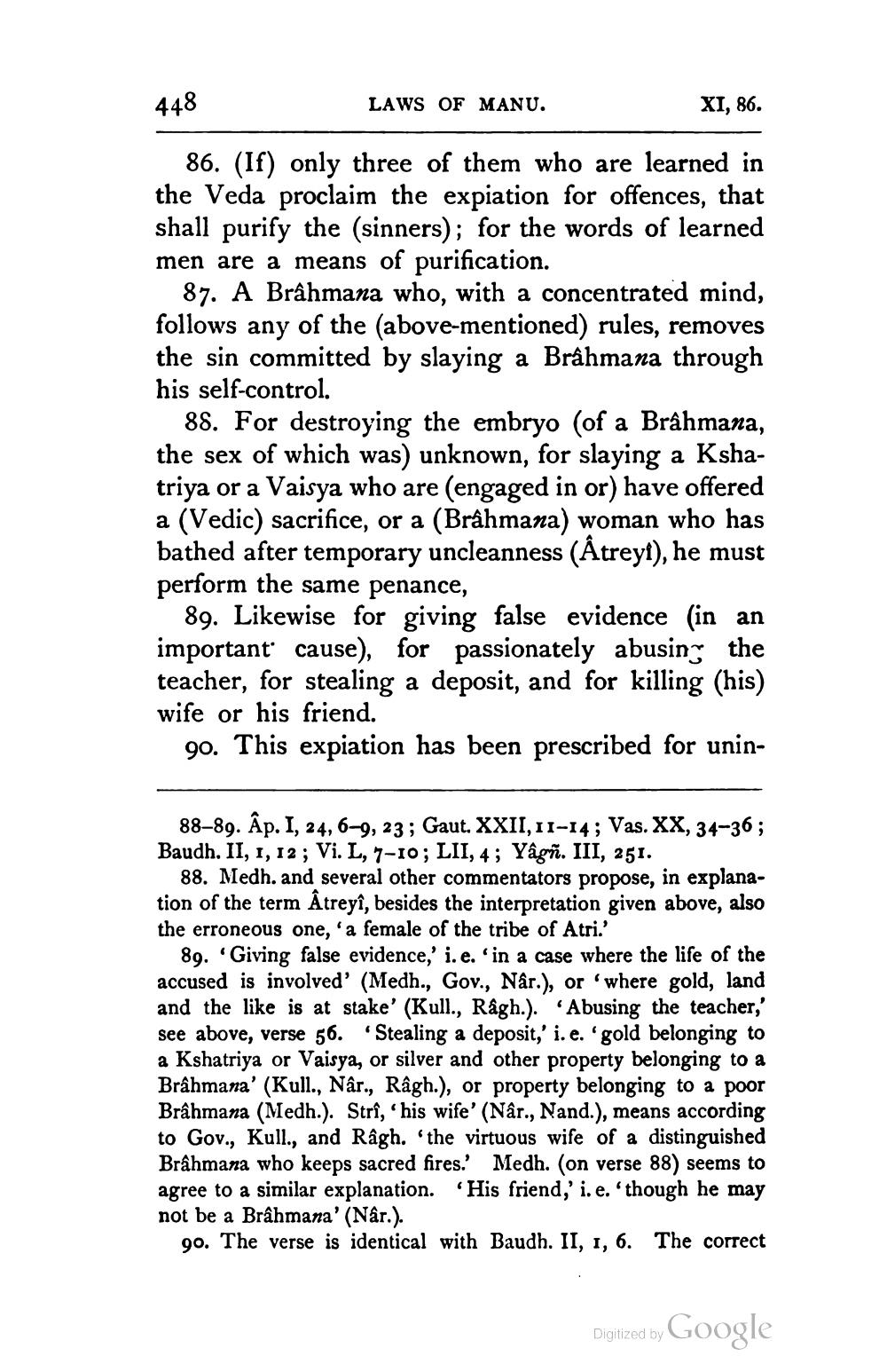________________
448
XI, 86.
86. (If) only three of them who are learned in the Veda proclaim the expiation for offences, that shall purify the (sinners); for the words of learned men are a means of purification.
87. A Brahmana who, with a concentrated mind, follows any of the (above-mentioned) rules, removes the sin committed by slaying a Brahmana through his self-control.
LAWS OF MANU.
88. For destroying the embryo (of a Brahmana, the sex of which was) unknown, for slaying a Kshatriya or a Vaisya who are (engaged in or) have offered a (Vedic) sacrifice, or a (Brâhmana) woman who has bathed after temporary uncleanness (Âtrey!), he must perform the same penance,
89. Likewise for giving false evidence (in an important cause), for passionately abusing the teacher, for stealing a deposit, and for killing (his) wife or his friend.
90. This expiation has been prescribed for unin
88–8g. Âp. I, 24, 6–9, 23 ; Gaut. XXII, xx-14 ; Vas.XX, 34-36; Baudh. II, 1, 12; Vi. L, 7-10; LII, 4; Yâgñ. III, 251.
88. Medh. and several other commentators propose, in explanation of the term Âtreyî, besides the interpretation given above, also the erroneous one, 'a female of the tribe of Atri.'
"
89. Giving false evidence,' i. e. 'in a case where the life of the accused is involved' (Medh., Gov., Nâr.), or 'where gold, land and the like is at stake' (Kull., Râgh.). 'Abusing the teacher,' see above, verse 56. Stealing a deposit,' i. e. 'gold belonging to a Kshatriya or Vaisya, or silver and other property belonging to a Brahmana' (Kull., Nâr., Râgh.), or property belonging to a poor Brahmana (Medh.). Strî, 'his wife' (Nâr., Nand.), means according to Gov., Kull., and Râgh. 'the virtuous wife of a distinguished Brahmana who keeps sacred fires.' Medh. (on verse 88) seems to agree to a similar explanation. His friend,' i. e. ' though he may not be a Brahmana' (Nâr.).
90. The verse is identical with Baudh. II, 1, 6. The correct
Digitized by Google




